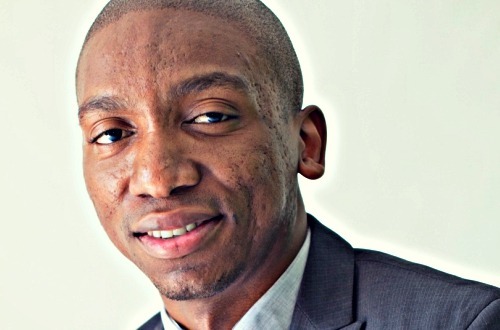
Although fintech is currently all the rage and the industry to be in, behind the hype, however, techpreneurs are faced with some big challenges.
And of these, distribution comes out as one of the most critical.
A great product and great tech is one thing but without a clear strategy on how to get to their customers, entrepreneurs within fintech will ultimately not achieve commercial viability. This is according to Dominique Collett, head of AlphaCode, Rand Merchant Investment’s hub for fintech startups, and an influential player in South Africa’s fintech scene.
“In financial services, distribution is everything and it is where a lot of the innovation really lies,” she says.
Distribution refers to the process of getting your products or services to the customers and can include wholesalers, retailers, distributors and even the internet itself. Incumbents, with their deep pockets and established customer base often have the distribution advantage, especially in fintech.
Distribution is often the difference between success and failure of fintech in Africa, says Collett, who is a financial services investor and a senior investment executive at Rand Merchant Investment and heads up AlphaCode, the firm’s hub for fintech startups.
“I always say that technology is a hygiene factor in financial services and the product needs to work but most of the innovation is actually in how you get the products to customers,” she says.
SME South Africa rounded up 5 fintech entrepreneurs and asked them how they are handling this challenge within their business.
The 5 entrepreneurs were among 11 local black-owned fintech startups with the potential to disrupt fintech in South Africa, that were called to pitch for a R4 million investment in an initiative by Bank of America Merrill Lynch South Africa and AlphaCode.
The winning fintech startups who each walked away with R1 million were: E-factor, an online marketplace that allows small and medium sized businesses to sell their invoices so that they can obtain payment within 24 hours; Imafin, established in 2013, a specialist payment and commercial credit firm driven by innovation on traditional payments models; Invoiceworx, an online platform that enables SMEs to save time and money when applying for credit from financial institution; Stokfella, which offers a digital platform for stokvels to manage their day to day affairs with ease; and a surprise additional R1-million was allocated to Heritage Capital Partners by Royal Bafokeng Holdings.
WHAT THEY DO: Stokfella offers a digital platform for stokvels to manage their day to day affairs. The startup aims to digitise a 19th century industry by leveraging off mobile technology to provide solutions that allows for organizing, communicating and wealth management. The company’s dream is to see every stokvel group and its members, pursue their financial freedom through them.
StokFella founder, Tshepo Moloi, on how they are dealing with the distribution challenge:
“Distribution is probably a key pillar to StokFella. Especially, dealing with a market where the majority is cash driven, we’ve always known we need to make it our primary strategy. [This is] why the solution still allows the Treasury to collect cash in the group with the ‘on behalf of’ functionality. For actual transactions, we have no doubt that the early, young, black middle class adopters of our product will go electronic (i.e. EFT and Debit order) however, we are looking at innovative ways to integrate the solution to the daily typical life of an older stokvel member where cash is king.”
E-Factor
WHAT THEY DO: E-factor is an online marketplace that allows small and medium sized businesses to sell their invoices so that they can obtain payment within 24 hours. E-factor also offers investors a low-risk asset class through invoice discounting. Investors can buy the invoices at e.g 3% discount to 30 days, (which translates to above 40% return per annum).
Co-founder and CEO, Tito Mbatha on how they are dealing with the distribution challenge:
“For every business, I believe [there’s a database], for instance the stokvel company, you go to a stokvel society, you give them equity, if not equity you give them a fee of what you make. They’ve not been making the fee so now you’re giving them a way of making money from their database.
What I did is, I went to the same databases of people who have many 100% black-owned businesses and other companies that need my services and said ‘guys I’ll give you 10% commission on your database’. So that’s a way of distributing without having to put up billboards and other expensive stuff.”
InvoiceWorx
WHAT THEY DO: Invoiceworx is an online platform that enables SMEs to save time and money when applying for credit at financial institutions. Through the platform, SMEs have access to a range of finance options such as trade finance, merchant finance etc.
In 2015, Invoiceworx participated in a global fintech competition and were one of the top 10 finalists out of 250 participants.
Siya Ntutela, co-founder of InvoiceWorx, on how they are dealing with the distribution challenge:
“We are using our networks for distribution as a starting point because marketing costs can be a killer for any startup. In our case, we’re using accountants, lawyers, people that deal with SMMEs on a daily basis to say ‘look, there’s an alternative way of funding your credit. So, I think Collett is on point by saying distribution is a huge thing because you just don’t have the deep pockets that the banks have, because remember in the fintech space, you’re competing with banks, you’re competing with insurers, they’ve got deep pockets, you don’t. So you have to find creative ways of disrupting them.”
MSM
WHAT THEY DO: MSM is an asset management business founded 7 years ago. MSM seeks to democratize investing and saving in South Africa with an automated platform. With over 25 years combined experience the team currently manages money for high net worth individuals (Assets Under Management, R20 million) and institutions (R100 million).
Musi Skosana, co-founder of MSM, on how they are dealing with the distribution challenge:
“The problem with distribution is that you already have got existing distribution but it only works for the big banks or the big asset managers. So, when you come on as a small enterprise you essentially have to build your own distribution model and that’s where the difficulty is and we anticipate that it’s going to be quite hard but that’s where we want to train people and basically show them what we’re doing and basically build that distribution. A distribution list takes time, it really does, and we anticipate that. And hence once we’ve built our own distribution list and social media and essentially Facebook, those are the new platforms of distribution. So you no longer have to go out there, you’ve got that and since everyone now has got a phone and smartphone penetration is at 40%, it’s growing very aggressively.”
Riovic
WHAT THEY DO: Riovic is developing a platform that will connect low premium insurance seekers with people that are willing to back that risk in exchange for the return and in the process bringing down insurance premiums.
Phiwa Nkambule – co-founder, on how they are dealing with the distribution challenge:
“I don’t agree that distribution is a challenge because you’ve got large numbers of people that don’t have access to financial services, whether it’s insurance, or loans or anything. So there’s a huge market gap. With the internet being there now and companies, either it’s insurance companies or banks that are willing to work with us, distribution isn’t a problem. The distribution channels are there. It’s easy to reach clients and it’s easy for them to reach us. The only big challenge is just regulation.”







